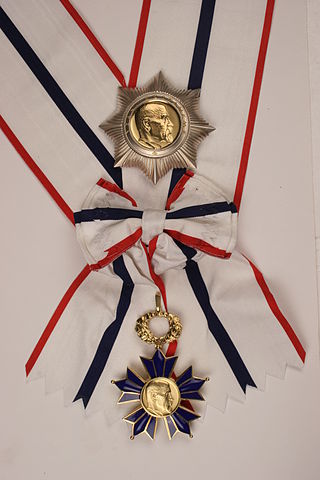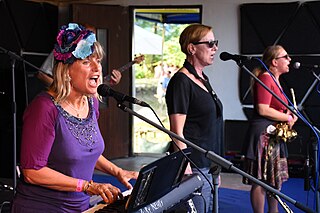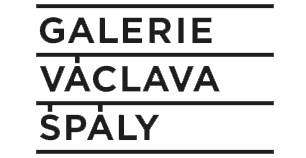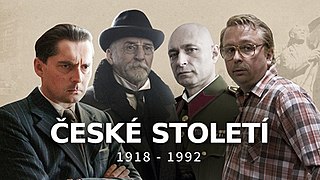
"The Magic of the Wizard's Dream" is the third single recorded by Italian symphonic power metal band Rhapsody, released in 2005.

The Plastic People of the Universe (PPU) is a Czech rock band from Prague. They are considered the foremost representatives of Prague's underground culture (1968–1989), which defied Czechoslovakia's Communist regime. Members of the band often suffered serious repercussions, including arrests and prosecution, because of their non-conformist ideals. The group continues to perform, despite the death in 2001 of its founder, main composer, and bassist, Milan Hlavsa. Up to 2023, they had released nine studio albums and over a dozen live albums.

The Czechoslovakia national basketball team represented Czechoslovakia in international basketball from 1932 to 1992. After the Dissolution of Czechoslovakia in 1993, the Czech Republic and Slovakia set up their own national teams. Both teams are recognized as the successor to the Czechoslovak team.

The Order of Tomáš Garrigue Masaryk is an Order of the Czech Republic and the former Czechoslovakia. It was established in 1990 after the Velvet Revolution, and re-established in 1994. The President of the Czech Republic awards it to individuals who have made outstanding contributions to the development of democracy, humanity and human rights. Unlike in the past, it is awarded to the Czech citizens and foreigners alike. The order has five classes, of which class I is the highest. The order is named in honor of Tomáš Garrigue Masaryk, an advocate of Czechoslovak independence and the first President of Czechoslovakia.

Zuby Nehty are an all-female underground rock group from Czechia.

Jazz Q is a Czech jazz fusion band from Prague. It was established in 1964 in the former Czechoslovakia by musicians Martin Kratochvíl (keyboards) and Jiří Stivín (flute) but didn't gain recognition until the next decade. In 1970, Jazz Q released the jazz-rock album Coniunctio, together with Radim Hladík's Blue Effect. Stivín left the band the same year. Following this, the group took their music in the direction of electric jazz and art rock, with a new lineup that included Luboš Andršt on guitar, Vladimír Padrůněk on bass, and Michal Vrbovec on drums. In 1973, Jazz Q was joined by English blues singer Joan Duggan.
The Czechoslovak Basketball League was the highest level professional club basketball competition for men in Czechoslovakia. Its successor national league in the Czech Republic became the Mattoni NBL, and its successor national league in Slovakia became the Extraliga.

The Václav Špála Gallery is a Prague gallery of mostly contemporary art. It is located at no. 59/30 Národní třída, in the New Town of Prague. The gallery holds exhibitions particularly of works by living Czech professional artists of the middle generation who are among the best painters, photographers, and sculptors on the art scene today. The exhibitions regularly alternate between works of painting, photography, and sculpture.

May the Lord Be with Us is a 2018 Czech historical television film directed by Zdeněk Jiráský. It was coproduced by Czech Television, Arte and ORF. It premiered at Finále Plzeň Film Festival. The film was watched by 799,000 people.
Žentour is a Czech pop rock group led by Janek Ledecký. The band has been active since the early 1980s and has gone through a number of lineup changes over the years, as well as several prolonged breaks. They have released four studio albums as well as three albums of English versions of their Czech material. As of March 2020, Žentour is on hiatus, and they haven't released any new music since 2014.
Citron is a Czech hard rock/heavy metal band founded in Ostrava in 1976. The band's history is divided into two distinct eras: between 1976 and 1981, when their name was spelled with a long "ó", Citrón, and they played mainly blues rock. During this time, the band leader was bassist Petr Michalík. The second era, from 1982 until the present, signalled a change in musical style towards hard rock and heavy metal, with drummer Radim Pařízek as band leader and the group's name slightly altered to Citron. As of 2021, Citron has released twelve studio albums, two EPs, and three official compilation albums.

Yo Yo Band is a Czech band from Prague formed in 1975 by Richard Tesařík, Vladimír Tesařík, Ondřej Hejma, and Julius Novotný Kuzma. The group achieved the peak of its success in the 1990s, with such hits as "Karviná", "Jedem do Afriky", "Rybitví", and "Kladno".

George & Beatovens is a Czech rock band, sometimes known as G&B or G+B, formed in 1963 in Prague by singer and guitarist Petr Novák. The band has released several albums and numerous singles throughout its career. They have broken up several times but remain sporadically active to this day.

Hudba Praha was a Czech rock band formed in 1984 by Michal Ambrož, after his previous band, Jasná Páka, was banned by the Communist government of Czechoslovakia. The group was active until 2015, with a hiatus between 1996 and 1999. In 2015, it splintered into two separate entities, known as Hudba Praha Band and Michal Ambrož a Hudba Praha. The band released five studio albums, one double EP, three live albums, and two compilations. Each splinter group has released one album. Michal Ambrož died in 2022.

Czech Century (Czech: České století, is a Czech historical television series. It deals with the background of important historical events in Czech history since World War I to the Dissolution of Czechoslovakia. According to the creators, it is not a pure documentary series, but rather a film series "exposing the taboo of key events of our modern history". In particular, the series studies the psychology and mental motivations of individual actors of historical events in the moments when these personalities "had a knife to their throats" and were aware that their decision would affect not only their loved ones, but the entire nation for many years to come. The authors deliberately do not evaluate whether the persons in question behaved right or wrong from a historical point of view.












